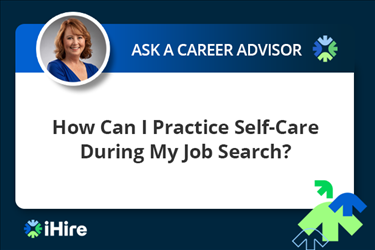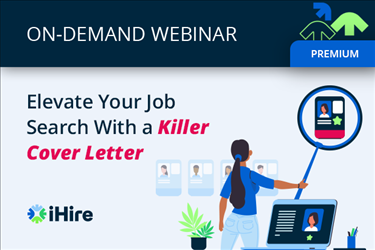- Job Seeker Resources
- |
- Last Updated: March 20, 2024

How to Navigate Unemployment: Tips for Managing Your Emotions & Mental Health
Unemployment is a stressful situation for anyone, and this period of joblessness can lead to intrusive negative thoughts that affect your mental health. It is very easy to become despondent and depressed, which could lead you to give up on your job search altogether. However, it’s important that you don’t ignore these negative emotions and instead work through them to move past the trauma of losing your job. Here are four tips to help you help you find your next great position.
1. Work Through Your Emotions
To truly move on from the negative emotions stemming from joblessness, you must first understand what those emotions are and why you’re feeling them. There are several ways to do this. Some people choose to write about their unemployment experience, utilizing prose and poetry as an outlet for the many emotions that come with losing a job. Other professionals choose to form a small support group with fellow job seekers. This will give you a chance to discuss the emotions surrounding your termination and will also provide an opportunity to network with people in the same situation as yourself who may have contacts in other companies that can help in your job search.
Allowing yourself to grieve is a vital step in healing. Otherwise, you may find that repressing your negative thoughts just forces them to reappear in other ways, like an increase in depression and anxiety, trouble sleeping, potential alcohol abuse, and changes in physical well-being. If possible for your situation, talking with a therapist can be extremely helpful when working through your emotions.
2. Stay Positive
While it’s important to acknowledge your anger and other negative thoughts, you don’t want to get stuck ruminating on them either. You can’t change what happened, but you can change how you react to it. Keeping a positive outlook while applying for jobs and trying to get back on your feet will make it a lot easier to find your next job.
For example, a lot of unemployed job seekers speak of losing their sense of identity and self-worth. One way to combat this is to count your blessings and write down the things you do well and the successes you’ve had throughout your career. Not only will this help rebuild your self-esteem and give you a positive outlook, but it will also be a valuable resource in preparing for interviews. Use your free time to do activities you find stimulating and rewarding. Return to your favorite hobby or discover a new pastime that piques your interest. Do something to take your mind off the stress of looking for a new job. By doing something positive and enjoyable, you can revitalize yourself and stay enthusiastic.
Job Seeker Sign In
3. Develop a Game Plan and Keep Your Options Open
The adage, “Make finding a job your job” definitely holds true, but it takes more than pulling 8-hour days in front of the computer screen searching for any job postings within a 100-mile radius. Nowadays, job seekers need to also utilize their networks and contacts from past jobs to find their next opportunity. The best thing to do is to come up with a game plan or a general schedule and stick to it. Don’t sleep in as if you’re on an extended vacation. Get up and get going every morning, set goals for how many jobs you’d like to apply to, and visit friends for lunch (and do some networking at the same time). Even though job searches are less personal in this technical age, the personal touch still counts.
4. Keep Active
Join a professional group/association, participate in social media, take classes, webinars, conferences, or workshops, volunteer at a local organization, contribute to industry blogs, or attend alumni events. Not only will this get your name out there and provide you with networking opportunities, but it will also ensure that your expertise remains current and your skills don’t languish while you’re out of work.
Being unemployed is never easy. It can be a devastating blow to the ego, a strain on relationships, and a huge cause of stress. Don’t take it personally. Almost every professional finds themselves out of work at some point in their career, and it’s important to be thankful for the things you have and surround yourself with positive, supportive people. Don’t despair, keep your spirits up, keep working toward the goal of getting a new job, develop a plan or schedule to provide structure for your day, and get creative in order to find your next great opportunity.
When you’re ready to start looking, iHire is here to help you find your next job.
Disclaimer: This article is not intended to be a substitute for professional medical advice, diagnosis, or treatment. Always seek the advice of your mental health professional or other qualified health provider.

May 18, 2022
Sign In or Register to access all articles and insider tips for help in your job search.
Search for iHire Jobs
RELATED JOBS
RELATED RESOURCES
Find the Right Job Faster
- Get personalized job matches sent to your inbox every day
- Connect directly with employers before your competition
- Advance your career with expert advice on interviewing, salary negotiation, and more
We value your privacy




